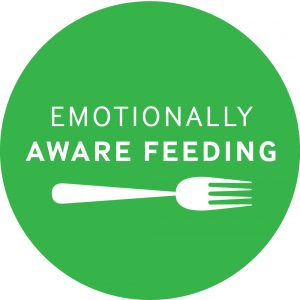Note to Reader: If your child is a picky eater your family might be feeling more stress than needed during mealtimes. Jo shares her practical and accessible approach to picky eating with Stress Free Kids readers. EAF (emotionally aware feeding) is based on psychological research and theory. Jo lives with her husband and three daughters in the UK. She is passionate about helping parents make mealtimes happy again.
by Jo Cormack
Picky eating: It’s all about feelings
Do you experience mealtime stress in your home? If you are one of the 50% of US parents who would describe their young child as ‘picky’*, then mealtimes are probably challenging in your household. As a loving parent, the urge to feed and nurture your child goes deep. In fact, that drive is part of what it is to be human – without it, the very survival of the human race would be in jeopardy. When you prepare a healthy meal for your child and she enthusiastically eats it up, that feels great. Conversely, when food that you have invested thought, time and money into preparing ends up being rejected, that can feel terrible.
 As a Child and Adolescent Therapist, much of my work is about understanding and processing emotions. Here are some of the emotions that can be around when you have a picky eater:
As a Child and Adolescent Therapist, much of my work is about understanding and processing emotions. Here are some of the emotions that can be around when you have a picky eater:
- Anxiety – worrying about your child’s health and growth is an understandable reaction to picky eating.
- Anger – Although you might try to hide it, it is natural that you will sometimes feel frustrated about your child’s food rejection. This tends to be in direct proportion to the effort you have put into preparing the food!
- Guilt – Guilt is such a destructive emotion. Many parents talk to me about feeling that their child’s picky eating is their fault.
Rather than focusing on the child, I teach parents to process their emotional reactions to their child’s pickiness. Often, children use mealtimes to test boundaries or to get a particular response from a parent. It sounds strange, but even a negative emotional reaction is a kind of pay–off for a child. My work is all about changing that dynamic. Once children are eating because they are hungry, not because they are stuck in a pattern of subconsciously using food to control their environment, things will start to improve.
My tips for getting it right at mealtimes
1) Unpack your baggage! Every parent is influenced by how they were parented. Talk to a friend or partner about your childhood. What values did you get from your upbringing in relation to food?
2) Get your child’s weight and growth checked by a health professional. Research shows that most picky eaters have no problems with their growth. Once you have been reassured that your child is healthy, you can worry less about what she eats.
3) Keep mealtimes relaxed and positive. Concentrate on the social side of eating. Chat with your child about the day, or about anything that isn’t to do with how much of his dinner he’s had… If the focus of the meal is all about what’s being eaten, you can get dragged into that emotional dynamic where he refuses to eat and you respond with an emotional reaction, giving him a reason to carry on refusing.
Above all, celebrate your food and the time you have with your children. Let them make their own choices about how much of their meal to eat and concentrate on enjoying their company.
British writer and therapist, Jo Cormack, is the author of War & Peas, a book about how to tackle picky eating by understanding the emotional and psychological aspects of children’s eating behavior. War & Peas is available on Amazon in paperback (currently $7.19) or for Kindle ($6.25) It is also available as an i-book via the iTunes store. You can find out more about Jo’s work on her blog: http://www.ea-feeding.com . She is also on Twitter: @Jo_Cormack
*Research carried out in 2007 found that between 20 and 50% of US parents would describe their child as ‘picky’